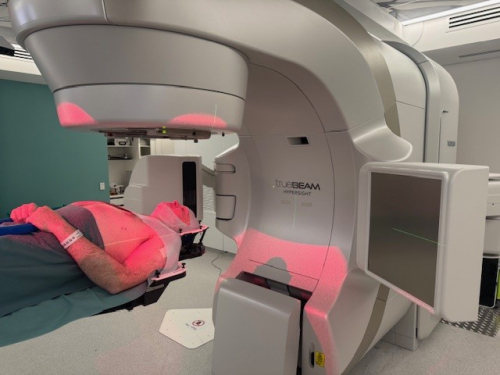Nutrition support when food is not enough

For more than five years, Marjorie “Mardi” Carter has relied on a feeding tube into her small bowel to receive all her nutrition, after treatment for oesophageal and breast cancer left her unable to eat and drink enough.
Mardi, now 85, said the initial adjustment was a challenge.
“Once you get used to it, it’s really quite easy, but when you first start, you think, I’ll never learn how to do this,” she said.
Mardi is one of 80 patients who utilise The Alfred’s home enteral nutrition (HEN) clinic, led by Dr Rebecca Burgell, Consultant Gastroenterologist and Ms Lisa Murnane, Senior Dietitian. The HEN service allows people to access tube feeding formula and equipment at home. It involves a team of specialist dietitians, doctors, nursing and allied health care professionals.
“I can’t imagine being left to do it without the team behind you, it would be very difficult,” said Mardi’s daughter, Liz.
Children and adults who need HEN often require access to a number of services, which can result in fragmented care.
The Australasian Society of Parenteral and Enteral Nutrition (AuSPEN), led by Alfred Dietitian Caroline Flood, is undertaking a survey across Australia and New Zealand to better understand how HEN services are provided.
Professor Ibolya Nyulasi, AuSPEN President and Manager of Nutrition Services at Alfred Health, said the integral role of nutrition in improving health is becoming increasingly recognised.
“We hope this project will help inform policy to ensure quality and timely care across services for people who require this lifesaving therapy to prevent and treat malnutrition,” she said.
Mardi has overcome her initial fear of the feeding tube.
“If you have to be tube fed, don’t be frightened of it because it works, it’s just fantastic, it’s a wonderful thing that someone has discovered.”
February 4-8 marks Feeding Tube Awareness Week.


